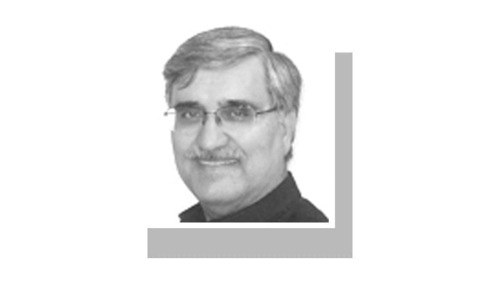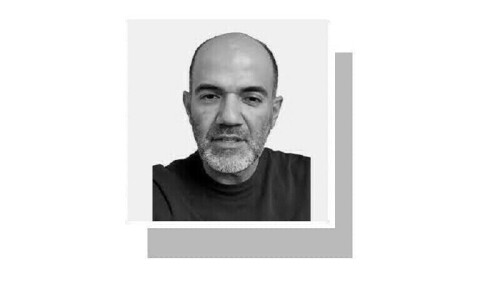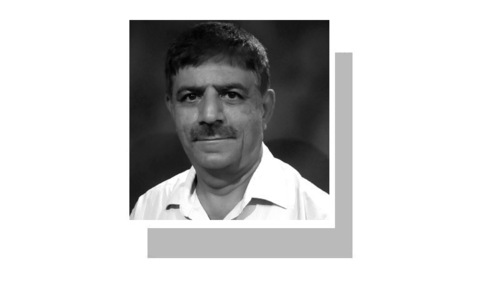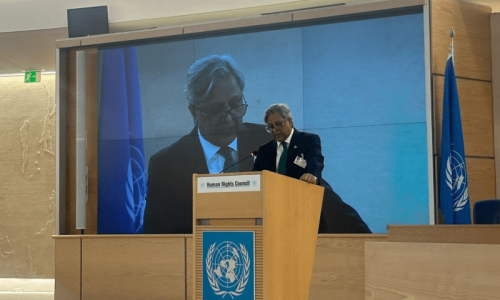West abetting India arms build-up, Pakistan deplores

ISLAMABAD: Pakistan on Thursday said it could not ignore the arms build-up by India including its purchase of Rafale fighter jets, which could be modified to deliver nuclear weapons.
“We have seen reports of recent acquisition of Rafale jets by Indian Air Force. According to some former senior Indian officials and several international publications, these Rafale jets have dual-capable systems that can be modified as nuclear weapon delivery platforms,” Foreign Office spokesperson Aisha Farooqui said at her weekly media briefing.
Five Rafale fighter jets reached India from France on Wednesday. These jets were the first from the 36 aircraft ordered by India in 2016 as part of its plans for upgrade of its air force.
Indian Defence Minister Rajnath Singh hailed the induction of the jets into Indian Air Force as “the beginning of a new era in our military history”.
The arrival of the new fighter jets in India comes almost six weeks after India’s armed clash with China in Ladakh.
Says Delhi’s newly acquired Rafale jets can be modified to deliver nuclear weapons
Ms Farooqui said India was expanding and modernising its nuclear arsenal both in terms of type and number of delivery systems. Additionally, it has nuclearised the Indian Ocean and continues to increase the readiness of its arsenal through measures such as canisterisation of missile systems, she added.
The spokesperson said India, the second largest arms importer in the world, was amassing military capabilities beyond its genuine security requirements.
She said India’s arms build-up was being aided and abetted by the West’s policy of exemptions, waivers and supply of advanced equipment, technology and weapons for its narrow commercial interests.
“Such arms transfers also violate the objectives of various export control regimes on preventing destabilising accumulation of arms in various regions including where there exist outstanding conflicts and disputes,” Ms Farooqui said.
“Transfer of advanced systems, where there is an open intention of conversion into nuclear delivery platforms, calls into question the commitment of international suppliers to non-proliferation commitments,” she added.
The spokesperson reminded that Pakistan had repeatedly warned about the risks of massive Indian arms build-up as well as its offensive security doctrine and force postures.
These developments, she said, were adversely affecting strategic stability in South Asia.
“The world community must dissuade India from its disproportionate arms build-up which could also lead to an arms race in South Asia,” Ms Farooqui emphasised.
Pakistan, she said, remained open to consideration of measures for crisis management, risk reduction and strategic restraint.
“Pakistan cannot remain oblivious to these developments and remains confident of its ability to thwart any ill-considered act of aggression,” she added.
Afghan ceasefire
Pakistan, the spokesperson said, welcomed the announcement of ceasefire in Afghanistan on Eidul Azha. “We see this as a positive development,” she said.
Taliban this week announced a three-day ceasefire on the occasion of Eidul Azha, which starts from Thursday night.
Afghan President Ashraf Ghani had earlier announced that his government would soon complete the release of 5,000 Taliban prisoners as agreed in the Doha Agreement signed between US and Taliban in February.
These developments point to the expected start of long elusive intra-Afghan dialogue.
“Regarding the matter pertaining to the Afghan peace process, we have already said on a number of occasions that the commitments made by both sides must be fulfilled to take the peace process forward,” the spokesperson said.
“Release of prisoners is one such commitment and we hope to see a forward movement in this aspect, so that the next step which is the intra-Afghan dialogue can take place,” she added.
Published in Dawn, July 31st, 2020















































